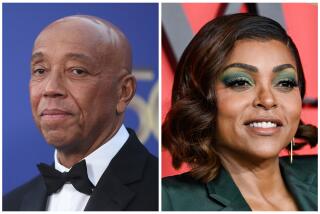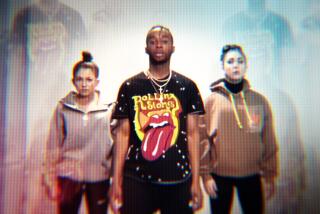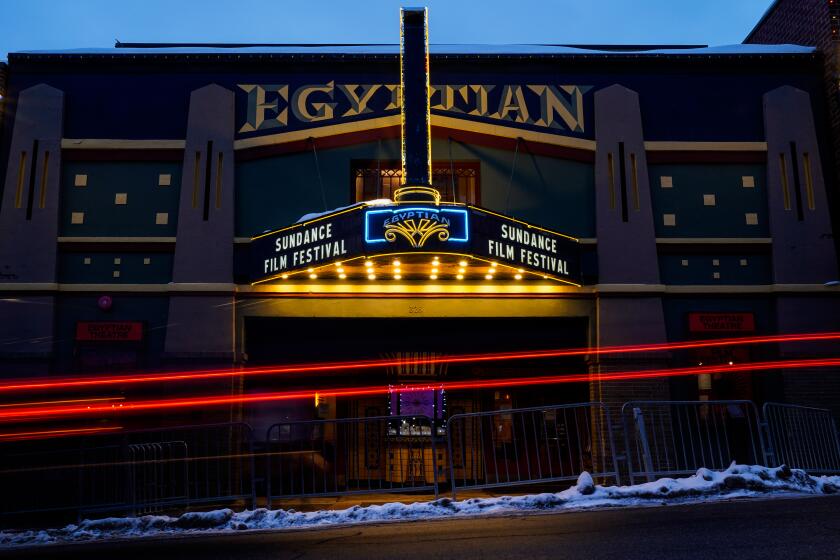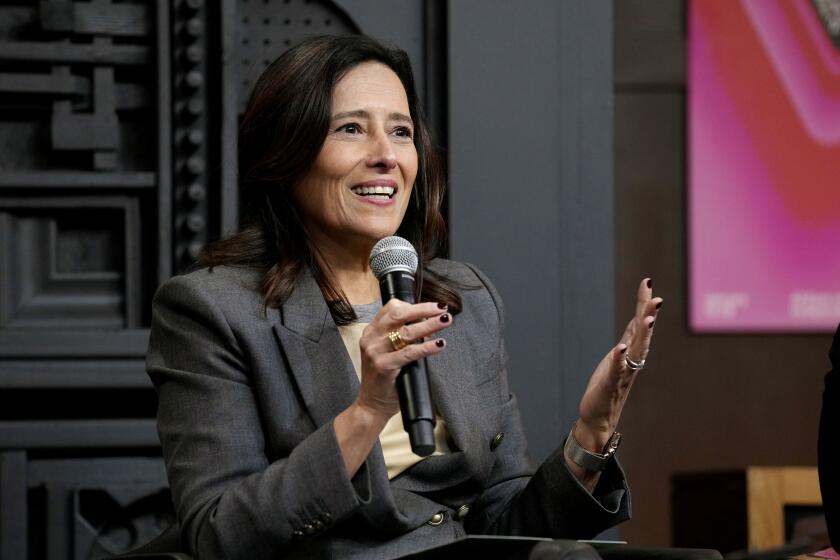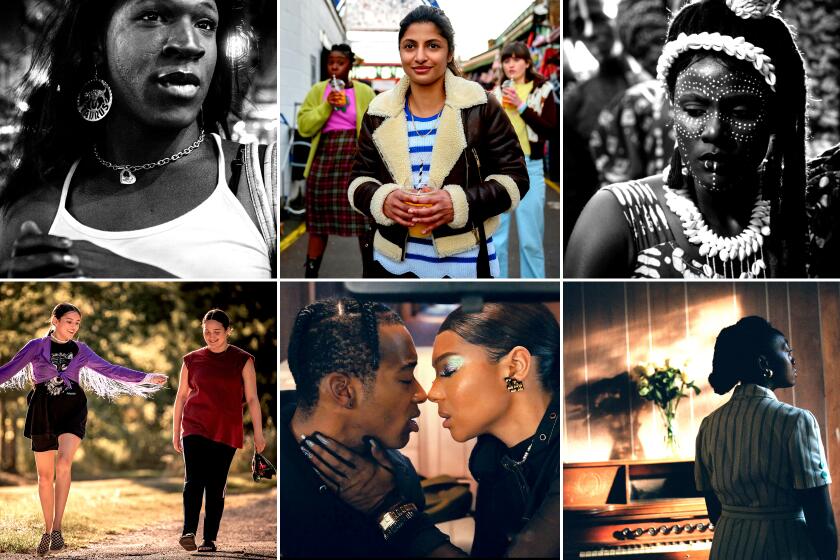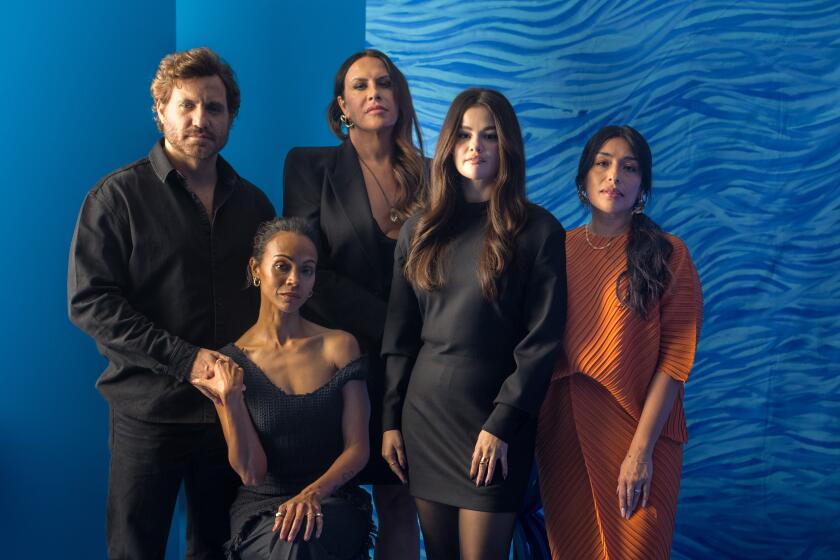Russell Simmons assault doc stuns at Sundance, but survivors brace for ‘fight’ ahead
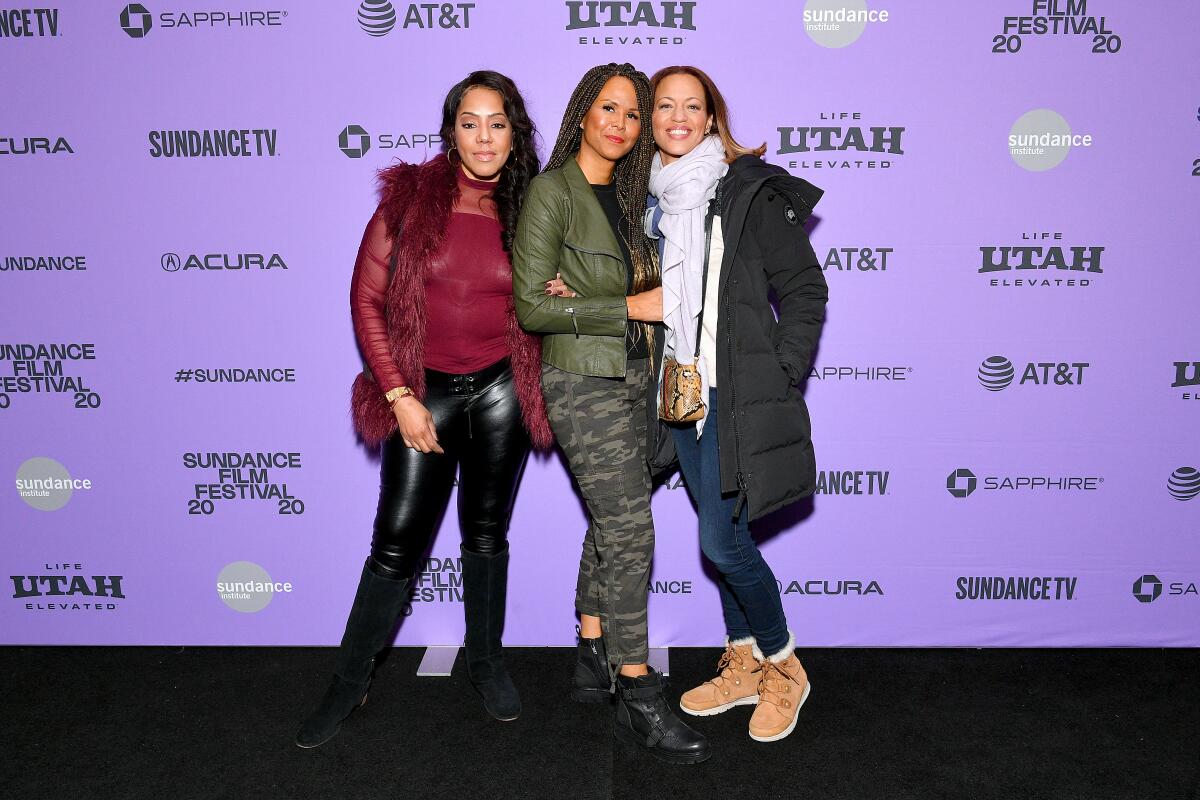
PARK CITY, Utah — “I never thought this day would come,” Sil Lai Abrams said, looking out at a theater full of people who had just risen to their feet to applaud her.
Just a couple weeks ago — before she stood in front of a rapt audience at the Sundance Film Festival — it did seem entirely plausible that Abrams’ story might not gain such recognition. On Jan. 10, Oprah Winfrey publicly announced that she was pulling out as the executive producer of the documentary, “On the Record,” in which Abrams and other women of color speak about the alleged sexual abuse they suffered at the hands of Russell Simmons. (The hip hop mogul has vehemently denied all claims of violence against women.)
Consequently, the film would no longer debut on Apple TV+, where Winfrey has a production deal. But the film’s Jan. 25 Sundance premiere remained intact — albeit now under the cloud of Winfrey’s sudden exit, which the media mogul attributed partly on “inconsistencies” in the stories of some of the women.
And yet despite the drama of the past month, “On the Record” debuted to an enthusiastic, emotional response here on Saturday night. Many festivalgoers, some with tears in their eyes, openly questioned aloud “what Oprah’s problem was” with the movie.
During the question-and-answer session following the screening, Rosanna Arquette — who has alleged that Harvey Weinstein assaulted her — immediately rose to her feet to deem the film a “masterpiece.”
“It’s very important, and I really am honored to be here with you all,” said the actress.
It didn’t take long, however, for an audience member to allude to the Winfrey controversy — questioning whether some of the backlash the film has faced is because its directors, Kirby Dick and Amy Ziering, are white.
“I’d love to say something about that,” said Drew Dixon, the documentary’s central figure, who accused Simmons of raping her in a New York Times story. “All of us have kept our stories to ourselves for decades, and there are people within that ecosystem who knew our story — and some of those people are filmmakers. ...But nobody told our story, because the people who knew our story were not subject to the same ecosystem. To me, this is where allies matter. Allies who are not subject to the same dynamic.”
“It is unfortunate that the people who actually took me seriously and broke my story were white. And I went to black people first,” added Abrams, noting that she told her story about Simmons to Kim Masters at the Hollywood Reporter. “I want you all to please note when you look at the people who have signed the petitions, the celebrities who have spoken out, the people who have stood up for us — by and large, they have not been our people.”
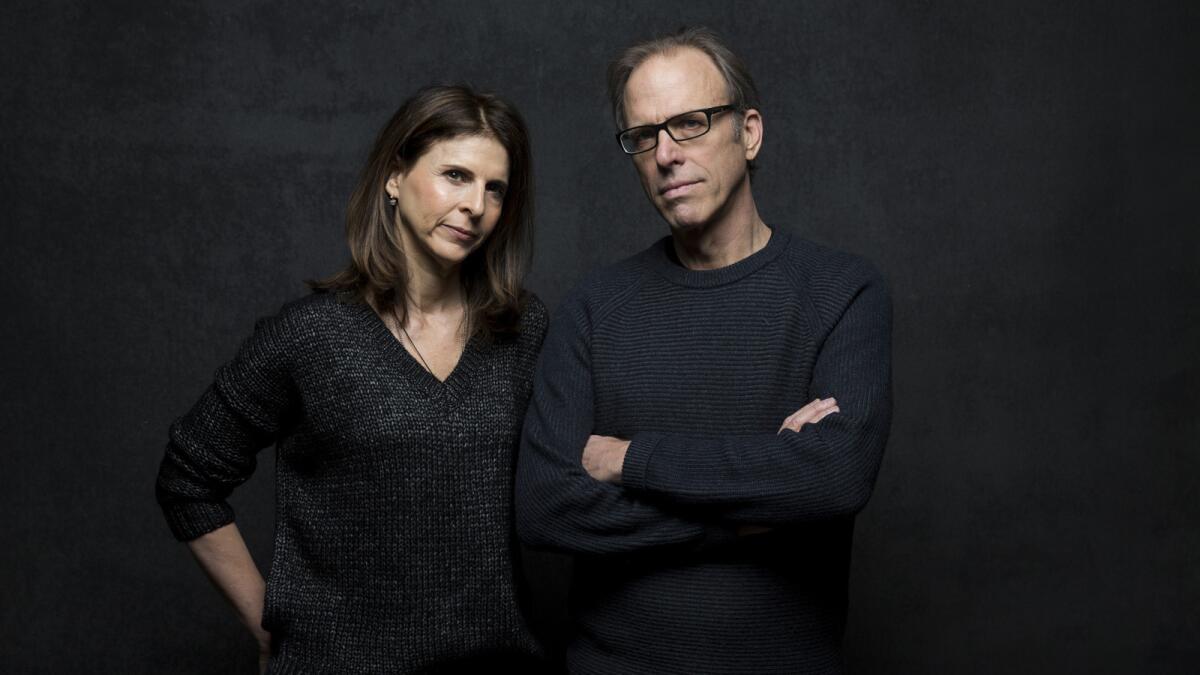
After being besieged by well-wishers, the film crew headed over to Main Street for an after-party. While there was a palpable sense of collective relief in the air, some of the film’s subjects still expressed concern about the road ahead for the project, which is now seeking theatrical distribution.
“This film may not see the light of day,” acknowledged Kierna Mayo, a veteran journalist who has covered the music industry for over three decades. “In actual reality, we’re still talking about a fight. We’re still fighting to be seen and heard and recognized and believed. It’s still ongoing.”
One of the most moving portions of “On the Record” occurs when Mayo talks about her relationship to Dixon, who says she was raped by Simmons when she was an up-and-coming music executive at Def Jam. The incident, Dixon says in the film, ultimately led her to leave the music business altogether — and that revelation spurs Mayo to share how deeply she connected to that tale of abuse.
“It was important for me to be here because I needed to stand up for myself as much as I needed to stand up for all of these women,” Mayo said after the screening. “It was hard as hell to do. I was scared then and I’m still scared. I am scared of shame. And I’m racked with shame, I think like so many women. I’m scared of not being understood, particularly by people who still support and love a lot of the powers that be — especially people like Russell.”
Watching Winfrey — whose work Mayo insisted she “loves and respects and honors” — voice her displeasure with the film has been difficult, the journalist admitted.
“This is all confusing and scary and hard. But standing up for these survivors and knowing what I know about Russell and my 30 hard-fought years in hip hop? I have the right to stand here. I have the right to be heard.”
But even continuing to talk about Winfrey instead of the film’s subjects is problematic, argued Shanita Hubbard, another journalist who appears in the movie. Without mincing words, Hubbard said she was “terrified” that the controversy surrounding the movie would take away from the women who “are bearing their souls about they got their lives back as survivors.”
“This isn’t ‘Real Housewives of Atlanta.’ This is not entertainment,’” said Hubbard, whose book “Miseducation: A Woman’s Guide to Hip Hop” will be released next year. “I don’t know if people are realizing the domino effect of how everything that is happening surrounding the film is impacting the survivors. This is our lives. We’re talking about sexual violence against black women. We don’t have the luxury of turning this off and saying, ‘That was a great show.’ I hope the survivors are protected.”
More to Read
Only good movies
Get the Indie Focus newsletter, Mark Olsen's weekly guide to the world of cinema.
You may occasionally receive promotional content from the Los Angeles Times.

